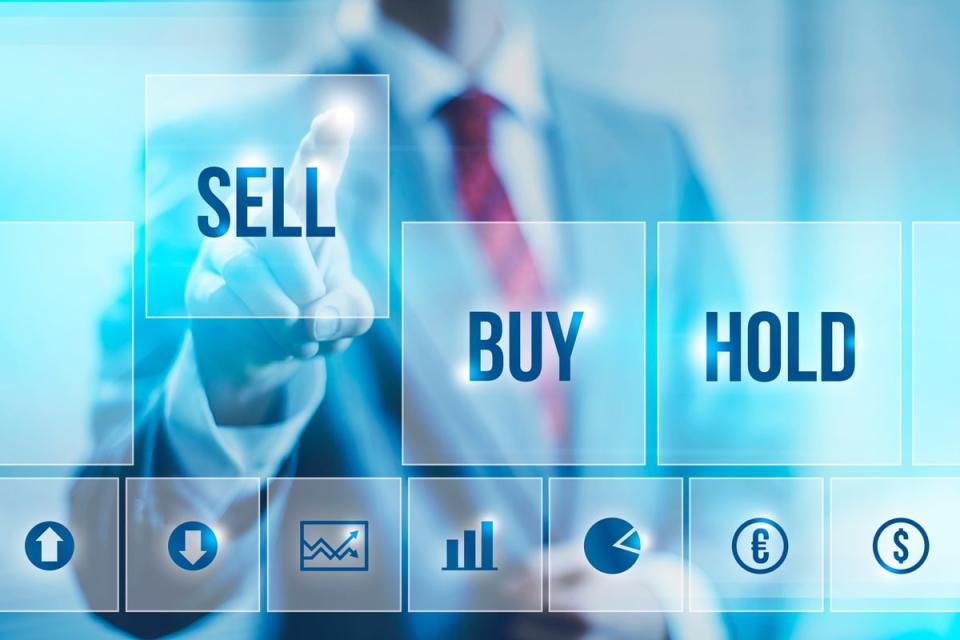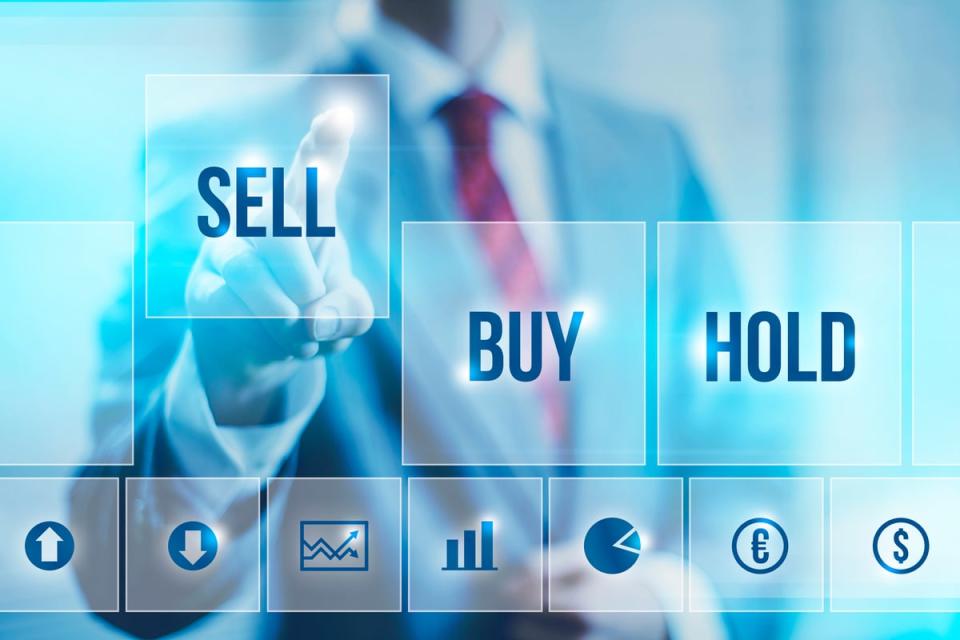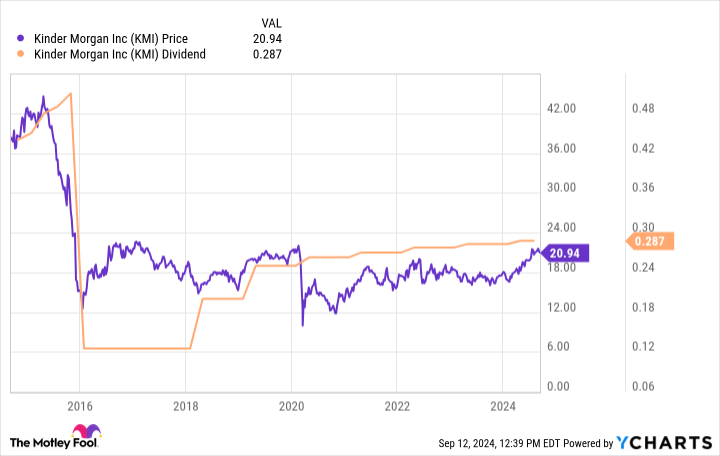Most investors will likely find Kinder Morgan‘s (NYSE: KMI) 5.5% dividend yield the company’s most enticing investment attribute. That’s particularly true given the scant 1.2% available from the S&P 500 and the 3.2% average yield for the energy indsutry.
But don’t start and stop with Kinder Morgan’s yield. There’s a lot more to think about as you make the buy, sell, or hold decision.
Buy Kinder Morgan stock?
Starting with the good things up front, Kinder Morgan is one of the largest midstream companies in North America. Its portfolio of vital energy infrastructure — including pipelines, storage, and transportation assets, among other things — would be virtually impossible to replace or displace.
The vast majority of the company’s assets produce reliable cash flow, driven by contracts. Although energy prices are important, Kinder Morgan’s business tends to be much less volatile than that of an energy producer or a refiner.

There’s a solid business to support the dividend. Notably, the company’s distributable cash flow covers its distribution by a strong 1.7 times. On top of that, Kinder Morgan boasts an investment-grade-rated balance sheet. All in, the dividend looks like it’s on solid ground.
As to the future, Kinder Morgan has $5.2 billion in capital investment projects on tap that should help to spur earnings. In 2024, it’s projecting earnings growth of 14% with distributable-cash-flow growth of 8%. That’s not a bad story if you’re looking for a dividend stock.
Hold Kinder Morgan stock?
If you own Kinder Morgan, the reason to buy it is basically the same reason you’d want to hold it. That said, there’s a little wrinkle.
Shares remain well below their high water mark in 2015. That’s an important period for the company because it was around that time when Kinder Morgan cut its dividend by 75%. If you have owned it since that point, you’re likely still underwater.
At this point, it doesn’t seem like you’ll get back to breakeven anytime soon. Why? Because the dividend is up just 2% year over year.
That’s pretty anemic dividend growth for a company that’s expecting distributable-cash-flow growth of 8%. If you’re sitting on losses that you could capture to offset gains elsewhere in your portfolio, you might want to consider selling Kinder Morgan for portfolio reasons.
Sell Kinder Morgan Stock?
That dividend cut should stick in your mind since it was something of a shocking development. Why? Because just months before the cut, management was telling investors to expect an increase of up to 10%.
To be fair, 2016 was a tough year for the energy sector, so it was probably the right call to cut the dividend. Or at least it was the right call for Kinder Morgan.
But there’s a problem with the 2% increase from above, too. That’s because leading into the turn of the decade, Kinder Morgan had laid out a huge dividend growth plan. The goal was very clearly to build back trust on Wall Street.
The plan was set to culminate in 2020 with a dividend increase to $1.25 per share. But the pandemic happened, and management pulled back on that plan (once again, probably the right move for the company), telling investors that it was still going to get to $1.25 but at a slower pace.
The most recent dividend annualizes to $1.15 per share. So four years later, Kinder Morgan still hasn’t made good on the bold dividend promise it made.
The big takeaway here is that it wouldn’t be shocking if you looked at these events and wondered if you could trust management. If trust is important to you, then you should probably sell Kinder Morgan or just not buy it in the first place. There are other midstream options, such as Enterprise Products Partners, with higher yields and better histories of living up to their promises. For reference, Enterprise has increased its distribution for 26 consecutive years.
What to do with Kinder Morgan?
Wall Street is forward-looking, so it would be understandable if investors bought into high-yield Kinder Morgan and its growth expectations. However, for conservative, long-term income investors, you can’t look just at the future because a company’s past says a great deal about how it operates.
In the case of Kinder Morgan, it seems like income-minded shareholders have taken the brunt of the pain when things don’t go as planned with the business. That will probably turn off more than a few potential investors (and maybe even some current shareholders).
Should you invest $1,000 in Kinder Morgan right now?
Before you buy stock in Kinder Morgan, consider this:
The Motley Fool Stock Advisor analyst team just identified what they believe are the 10 best stocks for investors to buy now… and Kinder Morgan wasn’t one of them. The 10 stocks that made the cut could produce monster returns in the coming years.
Consider when Nvidia made this list on April 15, 2005… if you invested $1,000 at the time of our recommendation, you’d have $729,857!*
Stock Advisor provides investors with an easy-to-follow blueprint for success, including guidance on building a portfolio, regular updates from analysts, and two new stock picks each month. The Stock Advisor service has more than quadrupled the return of S&P 500 since 2002*.
*Stock Advisor returns as of September 9, 2024
Reuben Gregg Brewer has no position in any of the stocks mentioned. The Motley Fool has positions in and recommends Kinder Morgan. The Motley Fool recommends Enterprise Products Partners. The Motley Fool has a disclosure policy.
High-Yield Kinder Morgan: Buy, Sell, or Hold? was originally published by The Motley Fool
EMEA Tribune is not involved in this news article, it is taken from our partners and or from the News Agencies. Copyright and Credit go to the News Agencies, email news@emeatribune.com Follow our WhatsApp verified Channel






